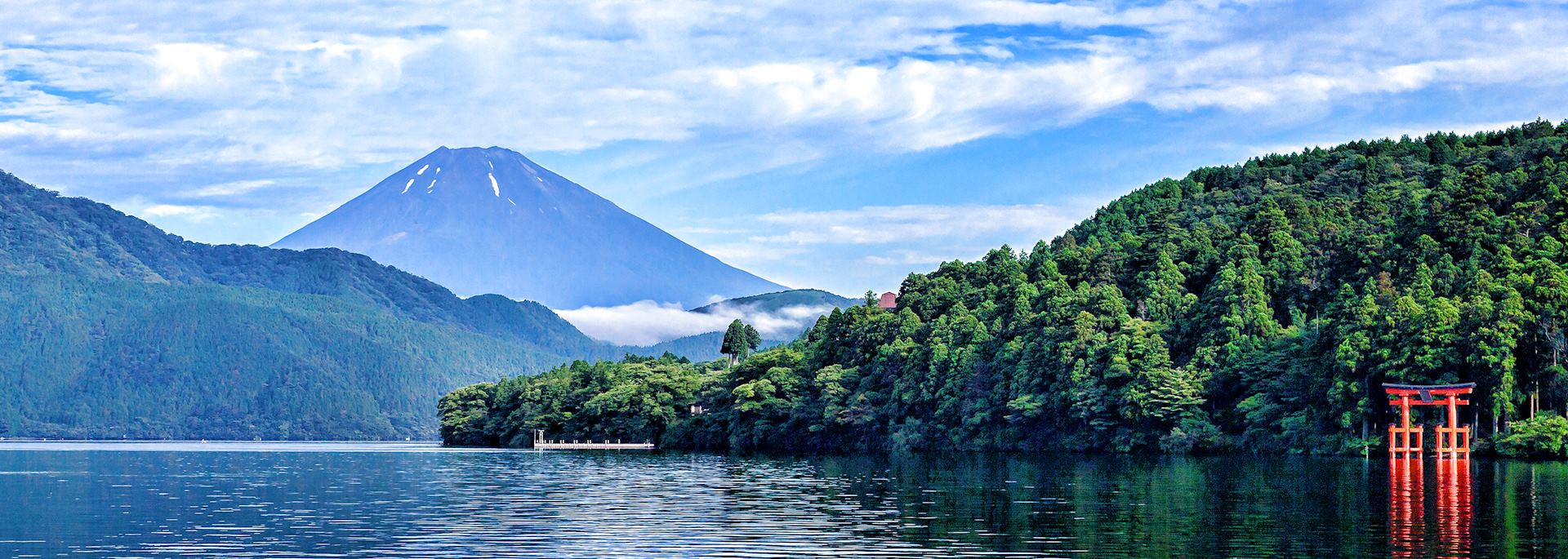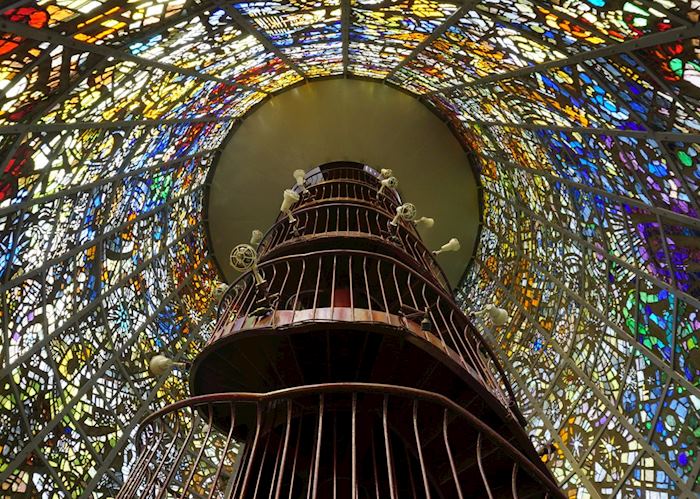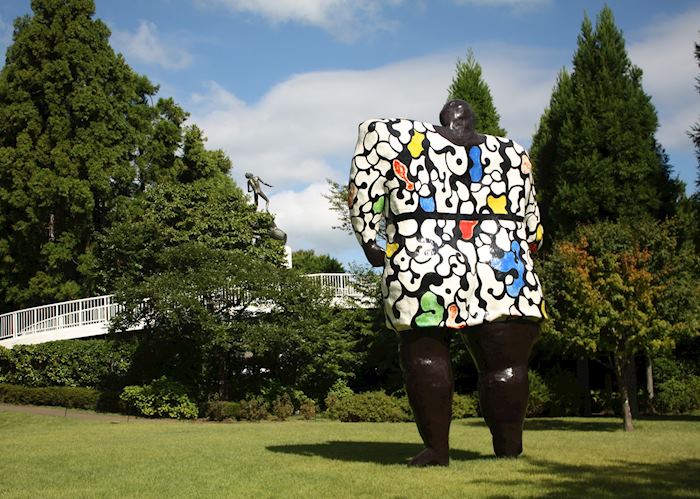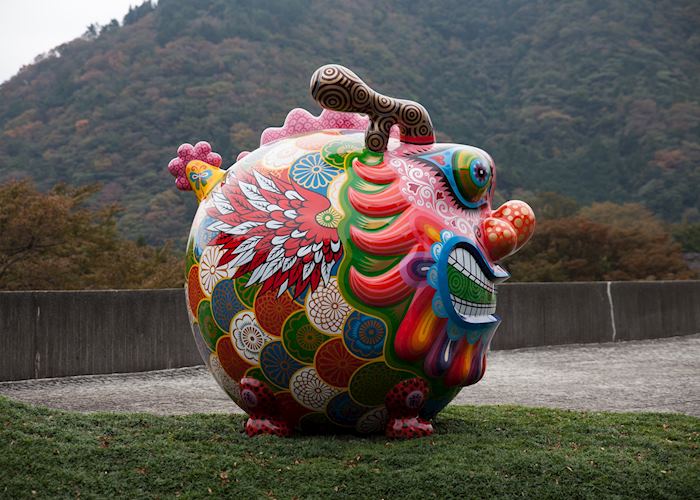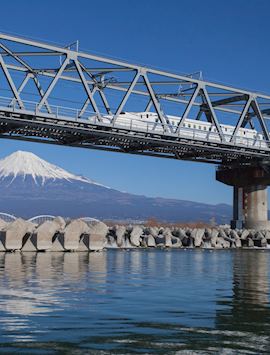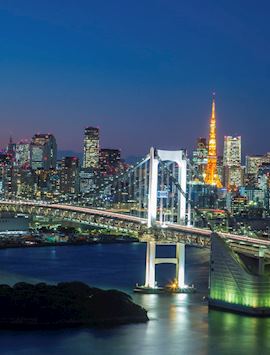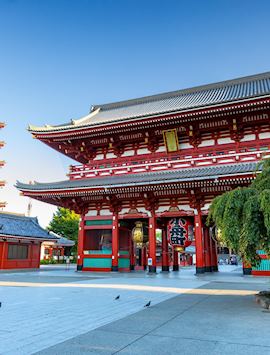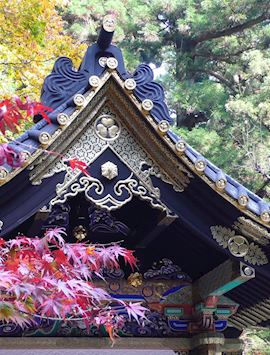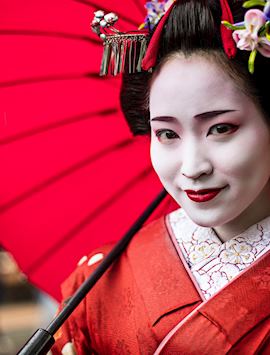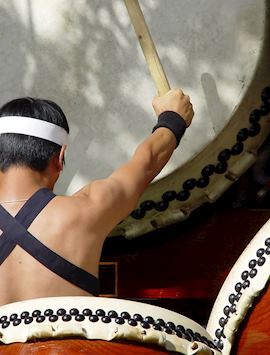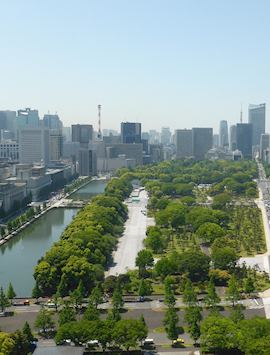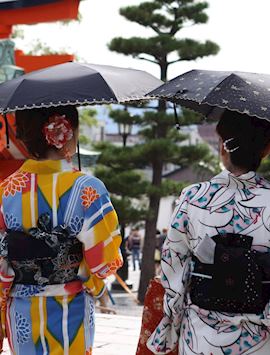
The full day Hakone Free Pass allows you unlimited access to the local scenic train line, the bus network, a funicular train up Mt Kami which leads on to a gondola ropeway, and a cruise boat on Lake Ashi. Mt Fuji can be sighted from various points around the park, weather permitting.
The park gets very busy at weekends and on national holidays, but nevertheless provides a contrast from the bustling cities of Tokyo and Kyoto and a breath of fresh mountain air. Most visitors adopt a circular route around the park, which can be completed in about six to seven hours. The loop can be accessed at various points around the park (depending on where your accommodation is located) but most people tend to follow the below route, as it is the most practical.
It is advisable to travel light in the Hakone area as most areas are reached by public transport with little storage space and it is easier to explore the park without your luggage.
Begin your day with a visit to the excellent Open Air Sculpture Museum at the village of Chokoku No Mori, around half an hour from Hakone-Yumoto station, the gateway to the park region. The museum houses sculptures by Henry Moore, Picasso, Rodin and Miro and was the first open air museum in Japan, opening in 1969. The museum has over 100 sculptures (often in rotation) and an extensive indoor collection as well. The museum should prove to be a highlight of your time in Hakone and should not be missed.
After some time at the museum, begin your full circuit of the park by heading off on the Tozan Railway to the small village of Gora at the foot of the mountain. From Gora take the funicular railway ("cable car" in Japanese) up Mt Kami. Alight here at Owakudani "Hell Valley" and take a walk through the bubbling sulfur vents and stop to try one of the famous black eggs, cooked in the heat of the natural thermal activity.
The route continues by cable car ("rope-way" in Japanese), providing some lovely views across Lake Ashi. Disembarking the rope-way you board one of the "pirate" sightseeing ships across the lake to Moto-Hakone or Hakone Machi, the main small towns in the region. From either it is possible to visit the Old Hakone Checkpoint which controlled the ancient road to Edo (old name for Tokyo). The checkpoint was established by the Shogunate government in 1619 to control the flow of weapons and people.
You can also walk along the Cedar Avenue, all that remains of the historic road today. Finally catch a bus back through the beautiful scenery to Hakone Yumoto station for your onward journey. Please note that the Komagatake Ropeway is operated by a separate company and is not included in the Free Pass.
Also of interest and worth a detour if you have time is the Pola Museum of Art near Gora station. The collection is housed in an unusual building, with much of the construction located underground. There is plenty of light however, designed to best show off the collections of Western and Japanese Western-style paintings by artists such as Rodin, Delacroix, Picasso and Saburosuke.
who's been there
-
617-223-4521617-223-4705
- Make an inquiry
Photos of Hakone National Park
Experience it for yourself
You can enjoy this activity as part of the suggested tours below, or we can weave it into a trip shaped entirely around you.
